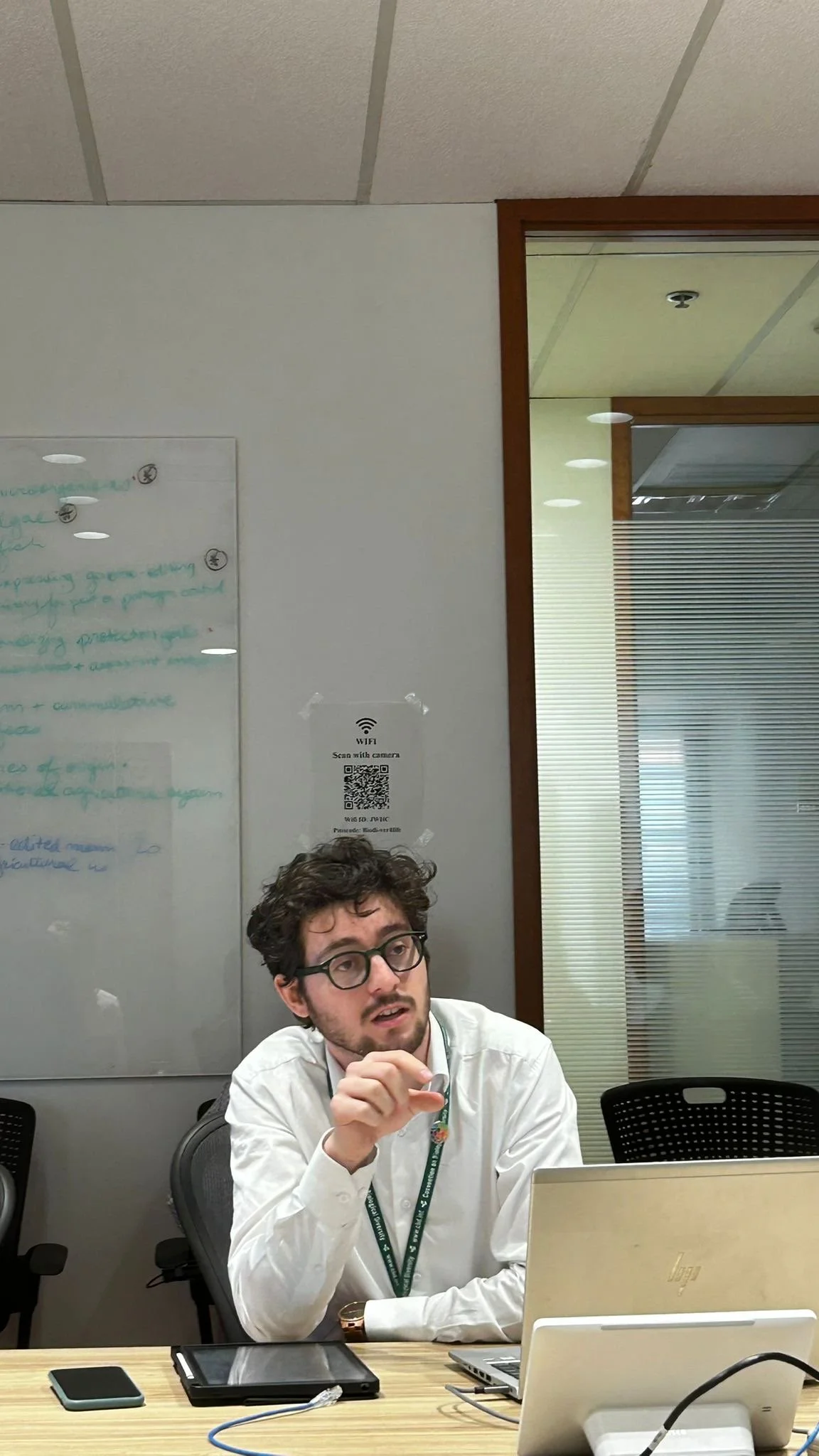Monitoring Nature from Behind the Desk: Reflections from a Summer Internship at the Secretariat for Convention on Biological Diversity
By Joshua Cohen
Biodiversity provides many ecosystem services which are often taken for granted from cultural services such as beauty and tourism, to regulating services such as raw materials and food, even including habitat services such as carbon sequestration and the prevention of erosion. Since its establishment in 1992, the Secretariat for the Convention on Biological Diversity has worked to conserve global biodiversity, ensure its sustainable use, and share in its benefits, including the transfer of relevant technologies.
This summer, I had the opportunity to further this mission as a Program Support Intern to the Planning, Monitoring, Reporting, and Review (PMRR) Unit of the Secretariat. In the wake of the negotiation of the Kunming-Montreal Global Biodiversity Framework (KMGBF), Parties to the Convention are mandated to update their National Biodiversity Strategy and Action Plans (NBSAPs) and national targets to reflect the new tenets of the Framework. I contributed to the unit’s work on assessing the level of ambition and degree of alignment with the KMGBF of the Parties’ submissions. This included broader analyses of various vectors such as the contents of the supplementary national indicators and the use of elements such as coordination mechanisms and subnational plans.
The purpose of these analyses was to inform Parties’ work toward achieving the KMGBF global Targets (which the Parties decided to achieve by 2030) and Goals (which the Parties decided to achieve by 2050). In addition to the analysis itself, I supported the writing of selected findings to add to an information document for the Subsidiary Body on Scientific, Technical and Technological Advice (SBSTTA) and the Subsidiary Body on Implementation (SBI), which will give guidance to the Conference of the Parties.
I also assisted staff of the Secretariat to prepare for meetings with other multilateral environmental agreements (MEAs). This included a second analysis of revised NBSAPs and national targets looking for synergies with biodiversity-related MEAs, chemicals-related MEAs, and the non-CBD Rio Conventions (which are the United Nations Convention to Combat Desertification and the United Nations Framework Convention on Climate Change) ahead of the Bogis-Bossey Expert Workshop on the Bern Process and the contribution of MEAs to the implementation of the KMGBF. It also included briefing notes on upcoming IMO meetings on biodiversity-related agenda items such as the identification and protection of marine protected areas and harmful aquatic organisms in ballast water. Finally, it included assistance to the PMRR Unit for the regional dialogues organized by the CBD to facilitate the submission of national reports. These tasks included drafting notifications, preliminary agendas, and meeting reports.
Across all my work, I was exposed to a new side of environmental governance. By working in a UN office, I was immersed in the mechanics and procedures of intergovernmental organizations. In preparing documents for various meetings, I learned the structures, functions, and procedures of various types of bodies within biodiversity governance. However, given the importance of grounding action in science, I also developed an understanding of key issues related to biodiversity in doing my tasks. To analyze the KMGBF global Targets, I first had to understand their issues which ranged from pollution to the access and benefit-sharing of genetic resources and digital sequence information. I look forward to bringing this understanding back to the Fletcher School.
I am deeply grateful to the Center for International Environment and Resource Policy (CIERP) for supporting this internship, which has been a wonderful experience and formative for my professional (and personal) development. As I begin my fifth and final year at Tufts, I am eager to apply my newfound knowledge to my capstone project on liming governance in the Great Lakes, the wonderful research in the Climate Policy and Shared Waters Labs, and my related classes in International Environmental Law & Diplomacy and Processes of International Negotiation.
Joshua Cohen is a BA/MALD student in his final year at Tufts University. Josh is currently a research assistant at CIERP with both the Climate Policy Lab and the Shared Waters Lab. His academic interests focus on the intersection of environmental and international legal issues, especially with regards to marine and freshwater issues.

